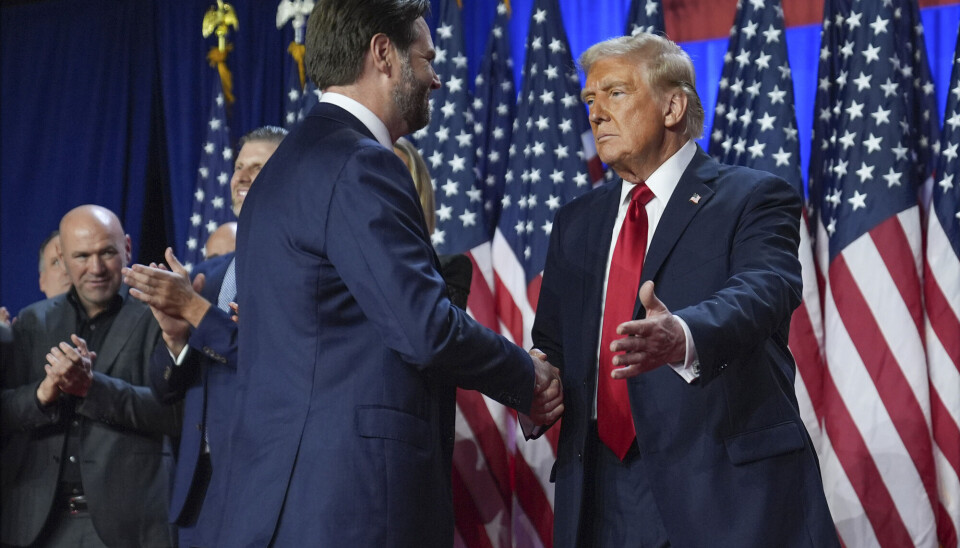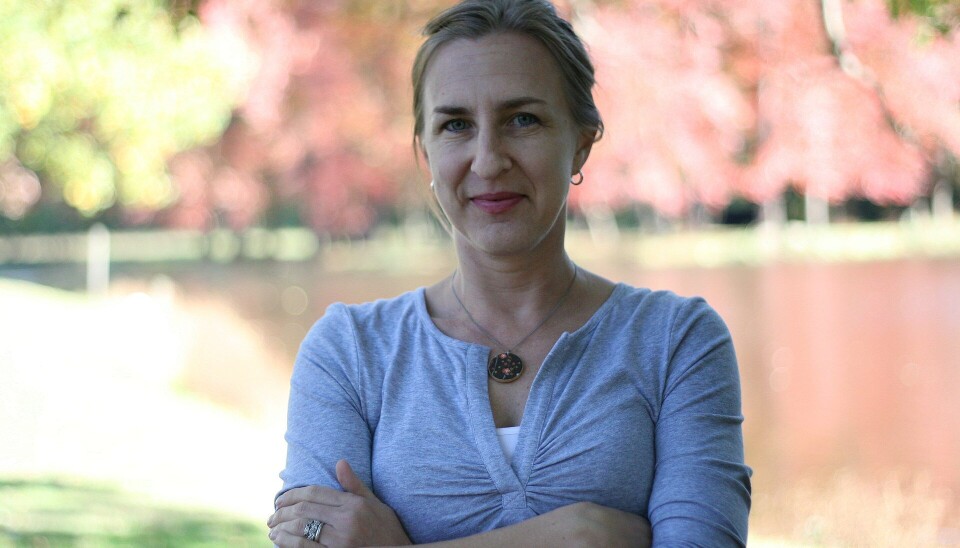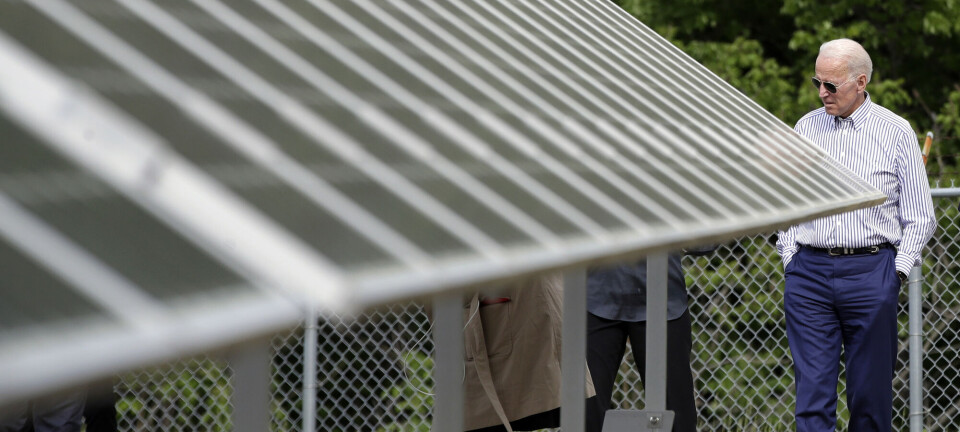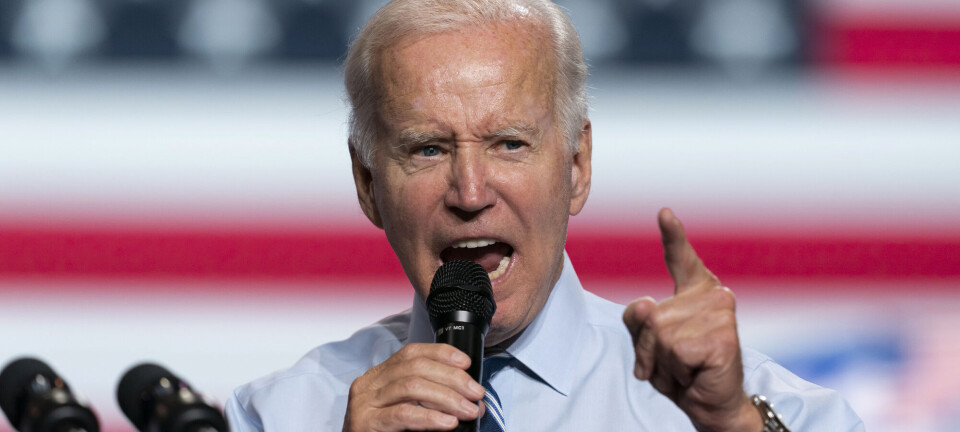
Political scientist: "It will be four challenging years"
Political scientist Jonas Stein is deeply concerned about what the US election will mean for Ukraine, the Middle East, and the security of Norway and Europe.
Already around three o'clock in the morning Norwegian time, it was quite clear that Trump would win, according to Jonas Stein. This did not come as a big surprise to him.
Stein is an associate professor in political science at UiT The Arctic University of Norway.
He explains the election result primarily through economic factors.
"This is a phenomenon happening in many Western countries right now. Those in power are struggling to be re-elected. And much of what drives this is economic discontent," he says.

"Everything has become much more expensive for people in the USA. People's standard of living has declined. This has been a significant focus of Trump's campaign," he says.
Economic growth under Biden
Despite economic growth in the USA under Joe Biden and inflation stabilising at normal levels, many Americans feel they are financially worse off.
They do not feel that the economic growth has been fairly distributed or benefited them. Stein believes the disparity has particularly grown between urban and rural areas in the USA.
"Trump has continued to gain support in rural areas, where people feel looked down upon by urban elites in the cities," he says.
Additionally, Trump has made significant advances among Hispanic voters and Black men.
"Previously, the majority of them voted for Democrats; now they are choosing Republican. Among young Black men, Trump's share of votes has increased from 10 to 25 per cent, according to some polls," he says.
Harris did not have an economic plan
Stein thinks that the economy is an important explanation for Trump’s win, as is his focus on immigration.
"Immigration is perceived as a threat by many in these groups. It challenges their jobs and puts pressure on wages in low-income groups," he says.
The reason Harris did not win support among low-income rural voters in the USA is, according to the political scientist, that she is a Black woman from California with low credibility on economic issues.
Most viewed
"She avoided all questions about the economy and didn't have an economic plan. She also faced significant challenges with immigration issues. To win an election in the USA, you must appeal to rural areas in the Midwest," he says.
How much power will Trump have?
Jonas Stein believes the big question now is how the U.S. institutions will manage to keep Trump’s authoritarian tendencies in check moving forward.
"Team Trump is far better prepared than when they won the election in 2016. They did not have as much control over the Senate, House of Representatives, and Supreme Court as they will now. Additionally, there were many from the Republican 'establishment,' likeChief of Staff John Kelly, who took on important roles during this period. Now there will be Trump loyalists in these positions, both in the Senate and the House of Representatives," he says.
American Elizabeth Shakman Hurd researches religion and politics at Northwestern University in Illinois.
"Trump's team is much better prepared than they were in 2016 to implement long-term changes that will threaten democratic processes and institutions. The potential for damage is enormous," she tells sciencenorway.no.
She points out that former New York mayor Rudy Giuliani was Trump's advisor and personal attorney. She believes this gives a clue about the types of people Trump will bring into his administration when he takes over in the new year:
"Conmen, clowns, family members, business associates, entertainment personalities like Joe Rogan, and various advisors, volunteers, and friends, all seeking to advance their own careers and bank accounts at the expense of the American people."

It will be four challenging years
It will be four challenging years, believes Jonas Stein.
He is deeply concerned about what the US election will mean for Ukraine, the Middle East, and the security of Norway and Europe.
"Trump has shown a fondness for authoritarian leaders. He fawns over Vladimir Putin and has a strained relationship with NATO allies. He has also said he will be the strongest supporter of Benjamin Netanyahu's government in Israel," he says.
Elizabeth Hurd echoes this sentiment.
"I expect to see blossoming relationships between the Trump administration and the leaders of dictatorships worldwide, including Saudi Arabia, Israel, and North Korea," she says.
We cannot expect the USA to be there for Norway and Europe, believes Stein.
"We must be prepared to take greater responsibility for our own security and seek more cooperation with our closest allies in Europe, who share the same democratic values as we do," he says.
———
Translated by Alette Bjordal Gjellesvik
Read the Norwegian version of this article on forskning.no
Related content:

Subscribe to our newsletter
The latest news from Science Norway, sent twice a week and completely free.






































